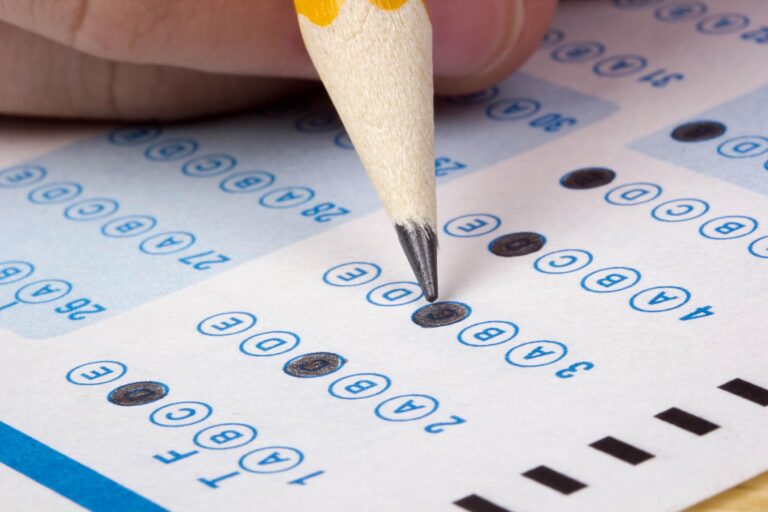San FranciscoŌĆÖs Grading Equity Policy Sparks Broad Criticism Over Academic Integrity
Progressive Voices Join Critics in Questioning San FranciscoŌĆÖs Grading Reform
San FranciscoŌĆÖs recently introduced grading equity policy, initially promoted as a forward-thinking solution to educational disparities, has ignited widespread debate that crosses traditional political boundaries. Surprisingly, many progressive educators and advocatesŌĆöwho typically support equity-driven reformsŌĆöhave voiced serious concerns that the initiative compromises academic rigor and fairness. These critics argue that while addressing systemic inequities is essential, the policyŌĆÖs method of adjusting grading standards risks diminishing the value of academic achievement for all students.
Central to the controversy is the policyŌĆÖs replacement of conventional letter grades with more subjective assessments designed to minimize disparities. Opponents contend this approach:
- Obscures clear indicators of student academic performance
- Creates challenges for college admissions and scholarship evaluations
- Potentially reduces studentsŌĆÖ motivation to strive for excellence
| Policy Element | CriticsŌĆÖ Concerns |
|---|---|
| Removal of Numeric and Letter Grades | Decreases clarity and accountability in student evaluation |
| Subjective Performance Criteria | Leads to inconsistent and potentially biased grading |
| Prioritizing Equity Over Academic Excellence | May lower overall academic standards and expectations |
This unusual alliance of critics from diverse ideological backgrounds highlights the need for educational reforms that balance fairness with maintaining high academic standards.
Educational Experts Warn of Risks to Fairness and Student Drive
Prominent education specialists and assessment experts have raised alarms about the implications of San FranciscoŌĆÖs grading equity initiative. They emphasize that modifying grading scales to equalize outcomes based on demographic factors can distort the true measure of student knowledge and skills. According to these experts, such policies prioritize statistical parity at the expense of authentic academic achievement, thereby weakening the reliability of grades as indicators of effort and mastery.
Moreover, the impact on student motivation is a significant concern. When grading no longer directly reflects individual performance, students may feel less compelled to challenge themselves or pursue academic excellence. As one researcher notes, ŌĆ£When grades lose their connection to actual achievement, studentsŌĆÖ incentive to exceed minimum standards diminishes, potentially hindering their long-term educational development.ŌĆØ
| Aspect | Traditional Grading | Grading Equity Model |
|---|---|---|
| Accuracy in Reflecting Student Performance | High | Uncertain |
| Encouragement of Academic Excellence | Strong | Potentially Weakened |
| Fairness Perception | Based on Merit | Adjusted for Demographics |
| Support for Long-Term Growth | Robust | At Risk |
- Calls for balanced reforms that address inequities without compromising grading integrity.
- Focus on individualized support rather than altering grading scales to achieve equity.
- Demand for transparent and objective criteria to ensure consistent and fair evaluations.
Community Advocates Demand Clear and Accountable Grading Practices
Leaders from various community sectors, including educators, parents, and activists, have expressed growing unease about the lack of transparency and consistency in San FranciscoŌĆÖs grading equity policy. Once hailed as a progressive milestone, the initiative is now criticized for potentially eroding the foundation of academic integrity and leaving students unprepared for future academic and professional challenges.
Key issues raised by community members include:
- Ambiguous grading standards: Confusing criteria that leave students and families uncertain about academic expectations.
- Risk of subjective bias: Evaluations that may unfairly impact certain student groups.
- Insufficient oversight: Lack of mechanisms to monitor and evaluate the policyŌĆÖs effectiveness and fairness.
To rebuild trust and ensure educational excellence, community leaders advocate for collaborative efforts involving all stakeholders. They emphasize the importance of:
- Implementing comprehensive reporting systems
- Conducting regular public reviews of grading policies
- Establishing clear communication channels between schools and families
| Group | Primary Concern | Recommended Solution |
|---|---|---|
| Teachers | Loss of objective grading benchmarks | Reinstate clear, standardized grading rubrics |
| Parents | Unclear report card information | Enhance communication and provide detailed guidelines |
| Activists | Balancing equity with academic excellence | Participate in transparent policy discussions |
Strategies for Achieving True Equity While Upholding Academic Merit
To foster genuine equity in education without compromising meritocratic principles, schools must adopt transparent and comprehensive assessment frameworks that honor both effort and achievement. This involves creating holistic evaluation systems that accommodate diverse learning styles and talents while preserving rigorous academic standards. Continuous professional development for educators is essential to mitigate unconscious biases and promote fair grading practices. Additionally, cultivating a supportive environment where all students are encouraged to meet clear expectations is critical for sustainable equity.
Effective approaches include:
- Clear grading rubrics: Detailed and accessible criteria shared with students and parents from the outset.
- Multi-faceted assessments: Combining exams with projects, class participation, and mastery-based evaluations.
- Targeted support programs: Tutoring, mentoring, and resources aimed at assisting underrepresented students without lowering standards.
| Equity Initiative | Meritocracy Protection |
|---|---|
| Flexible deadlines for valid reasons | Consistent mastery and credit criteria |
| Customized learning plans | Regular performance assessments |
| Accessible academic support services | Objective and transparent grading scales |
Final Thoughts: Navigating the Path Between Equity and Excellence
The controversy surrounding San FranciscoŌĆÖs grading equity policy highlights a growing skepticism about educational reforms that may unintentionally erode academic standards. Notably, even progressive advocates have expressed reservations about approaches that could disadvantage students by diluting merit-based evaluation. Moving forward, it is imperative that efforts to reduce educational disparities strike a careful balanceŌĆöensuring fairness while preserving the integrity and accountability that underpin academic success. This debate underscores the necessity of inclusive, transparent dialogue among educators, families, and policymakers to shape equitable and effective education systems for the future.




